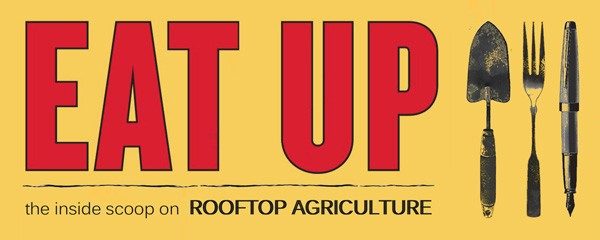an onion blooms in the desert

Gaza refugees planting a rooftop pilot project || photo by Refutrees
Amid conflict and persistent food insecurity Palestinian refugees are cultivating their rooftops to produce fresh vegetables close to home. Last week the Middle Eastern sustainability news website Green Prophet reported that families in West Bank refugee camps are growing subsistence crops and sprouts of hope with the help of international organizations and local non-profits.

Aida Refugee Camp volunteers || photo by Refutrees
One such non-profit, Refutrees, launched a rooftop gardening pilot project in January within Gaza’s Aida Refugee Camp in partnership with local cultural organization Lajee Center. The community-built raised bed garden, born from five-years of urban agricultural research conducted by the partner organizations, reflects a collective effort to improve food access and community health to Gaza’s 44% food insecure population. Volunteers and local youth planted the rooftop garden – which is protected by a plastic high tunnel – with lettuces, radishes and onions. The organization hopes that the pilot project will demonstrate the potential of rooftop gardening thereby encouraging 20 families to build rooftop gardens across the camp and ultimately beyond.
Many West Bank refugee camps lack space for agriculture and other essential activities that traditionally occupy the landscape. Cultivating the little space that is available within the volatile camps may present serious concern for personal safety, thereby placing the refugees in a precarious situation when it comes to food production. “Rooftop gardens in refugee communities [can] provide access to fresh, organic produce, create safe educational spaces, and… develop capacity for sustainable livelihoods,” states Refutrees’ website. Furthermore, rooftop gardens pose a practical solution in that they take advantage of flat roofs, a staple of Middle Eastern building stock. Many Middle Eastern cultures already view flat rooftops as an accessible part of the house, so gardening in this space is a natural step forward for many.

Bethlehem refugee rooftop garden || photo by Karama Organization
Fourty-five miles east of Gaza, 15 families in Bethlehem’s Dheishah Refugee Camp similarly began gardening their rooftops, in 2012, thanks to assistance from the Karama Organization. The local NGO, whose name translates to “dignity,” promotes women’s education through its Rooftop Micro-Farming Program. By providing water tanks, soil, seed, planter materials and training, the group empowers women within the camp to grow fresh produce for their families and neighbors. Tomatoes, eggplant, green beans, cucumbers, strawberries and other vegetables previously inaccessible to most refugees are now a part of daily life for some.
Political and religious views aside, rooftop gardening in refugee camps has gained international attention by addressing food security while cultivating hope. “It gives me a connection to the land,” Rooftop Micro-Farming Program participant Hajar Hamdan told Karama Organization in 2012. “My family were farmers and I’ve come back to my roots. It gives me the feeling I’m sitting in a big field. This is my big field.”
 EAT UP
EAT UP
Great write-up as usual. Really a cool story!!
Thanks, Greg! There’s a lot of agricultural activity on Middle Eastern and North African rooftops. More posts to follow…